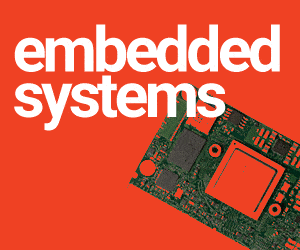From autonomous vehicles and intelligent robotic assistants to advanced manufacturing and smart energy systems, autonomy and AI technologies promise to revolutionise the way we travel, live and work. In response to this exponential growth and future potential, USC’s Viterbi School of Engineering has launched the USC Center for Autonomy and AI.
This new interdisciplinary center brings together researchers, students and industry leaders to work on challenging problems in the fields of AI for dynamic systems, intelligent autonomy and multi-agent systems. Drawing upon USC Viterbi’s long legacy of scholarship and teaching in both areas, the new center will design innovative technology to act autonomously without human input in a safe and reliable manner.
“Autonomy and other fast-evolving computing technologies, such as AI, are revolutionizing our world in multiple dimensions—from education to research to innovation,” said Yannis C. Yortsos, dean of USC’s Viterbi School of Engineering. “Creating such a center at USC Viterbi will provide a nexus of many cross-cutting initiatives and a thriving ecosystem of education and exploration”.
“Autonomy and other fast-evolving computing technologies, such as AI, are revolutionizing our world in multiple dimensions.” Yannis C. Yortsos.
Led by director Rahul Jain, a professor of electrical and computer engineering, computer science, and industrial and systems engineering, and co-director Jyo Deshmukh, an assistant professor of computer science, the center focuses on new and emerging technologies with real-world applications.
“The technology for developing intelligent autonomous systems is at the cusp of several breakthroughs, but some fundamental technology bottlenecks remain,” said Jain.
“This center will have a unique focus on fundamental research challenges at the center of AI and autonomy to enable new technologies in a wide variety of applications from self-driving cars to autonomous robotics, and deliver value to industry, the country and society.”
By offering scholarships, workshops and internships, the center will also train a new generation of students in this fast-evolving field, supporting educational experiences, infrastructure for research, and events that bring campus and student researchers together with industry professionals and the broader community.
The center also plans to offer new classes, including a course where students will learn to equip a drive-by-wire autonomous vehicle with various sensors, and test basic autonomous driving control algorithms.
“Such courses can provide a unique hands-on experience to our students, connecting what they have learned in classes to real-world problems, while also preparing them for job opportunities in this technology space,” said Jain.

New and emerging technologies
Key to the center’s success: collaboration across disciplines, including internationally recognized faculty from Viterbi’s Ming Hsieh Department of Electrical and Computer Engineering, the Department of Computer Science, the Epstein Department of Industrial and Systems Engineering and the Department of Aerospace and Mechanical Engineering.
“Solving these challenges really requires cross-collaboration between various areas of engineering and computer science,” said Deshmukh. “We need expertise from a broad spectrum of people, each with their own perspective, working together on these problems.”
By leveraging industry insight on critical fundamental research needs, the center will provide a venue for faculty, researchers and students to engage with industrial partners. The center is offering memberships to industrial partners, with funds used to support faculty research projects and Ph.D. fellowships.
This fall, the center hosted its inaugural Workshop on Safe Autonomy and Practical AI with participation by representatives from nearly 20 companies, including founding industrial associate members Siemens and Toyota.
“From our current and potential industrial partners, we have learned that fundamental technology challenges and bottlenecks are shared across a wide swath of industrial sectors and applications, which motivates the need for an academic research center with significant industrial participation,” said Jain.
Through the center, industrial partners will have access to a talent pool of faculty researchers with deep expertise, and an opportunity to mentor students, while working on shared critical needs. In addition, there will be an industrial research fellow and visiting scientist programs to cross-pollinate ideas between academia and industry.
This message contains information which may be confidential and privileged. Unless you are the intended recipient (or authorised to receive this message for the intended recipient), you may not use, copy, disseminate or disclose to anyone the message or any information contained in the message. If you have received the message in error, please advise the sender by reply e-mail, and delete the message. Thank you very much.






